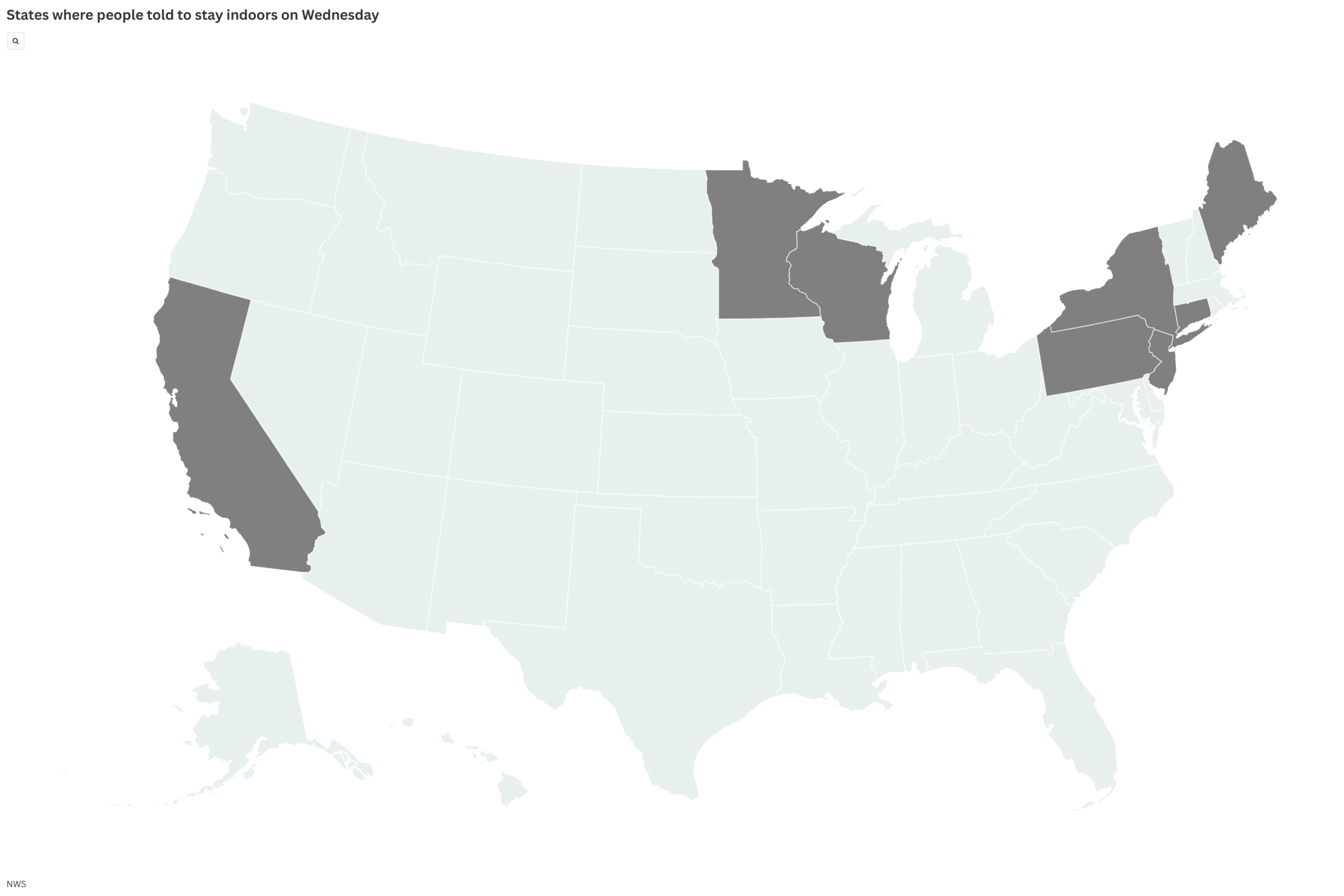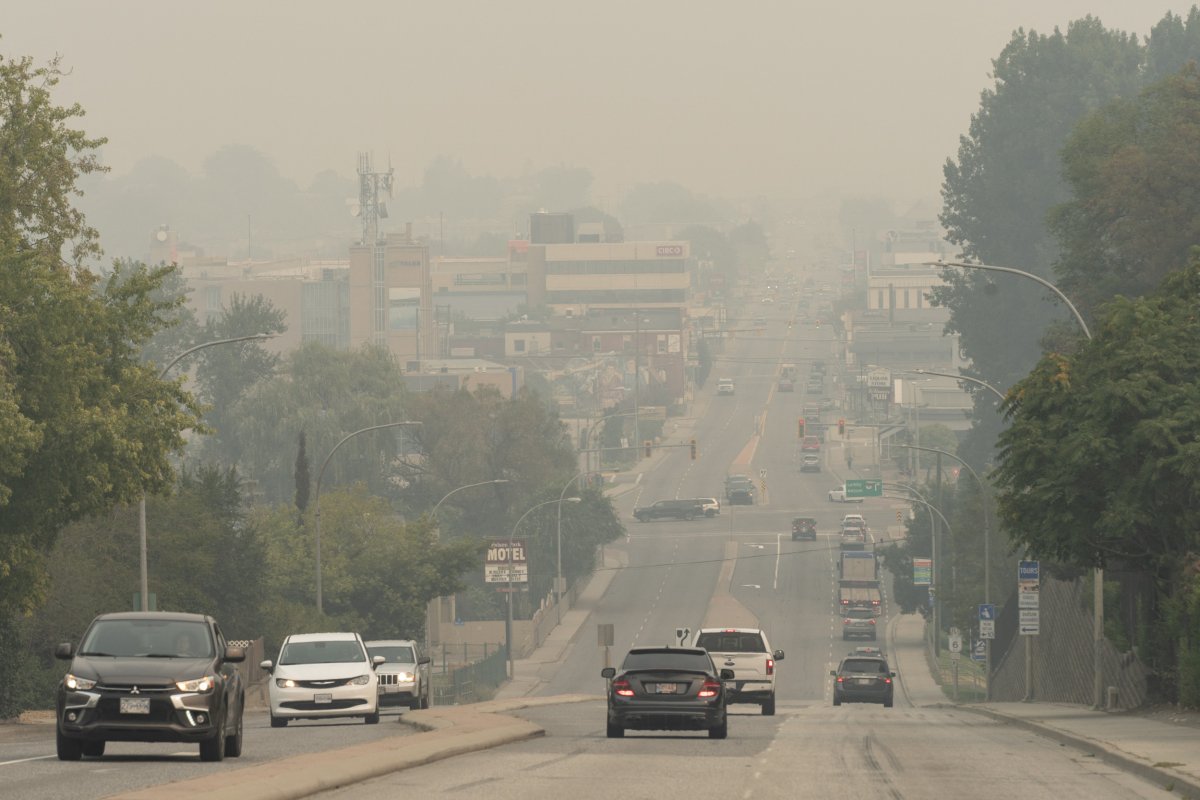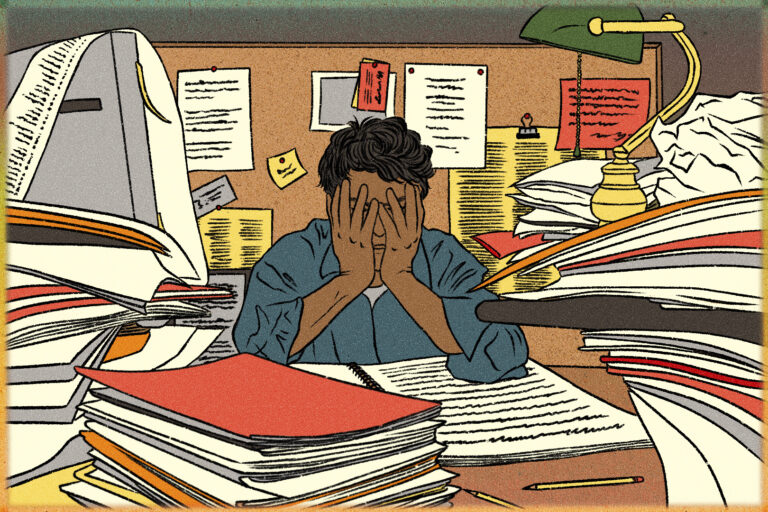
People in eight states were advised to limit their outdoor activities on Wednesday due to poor air quality.
In some instances, air quality was worsened by smoke from Canadian wildfires, and National Weather Service (NWS) Weather Prediction Center meteorologist Joe Wegman told Newsweek that it would be unlikely for the smoke to completely leave the United States “anytime soon.”
Why It Matters
This is the first time excessive Canadian wildfire smoke has significantly impacted U.S. air quality since 2023, when wildfires in the region worsened air quality to dangerous levels for millions in the Northeast.
In smaller amounts, smoke can cause hazy skies and create beautiful sunsets and sunrises. However, in higher amounts, the smoke can be dangerous, even prompting alerts urging people to stay inside until it clears.
What To Know
Over the past week, unhealthy air quality has been detected across Upper Midwest states like Michigan, Minnesota, and Wisconsin. However, smoke was creating milky skies and vibrant sunsets as far south as the Gulf Coast.
NWS alerts issued in several states on Tuesday anticipated the air quality to remain unhealthy at least through part of the day on Wednesday.
In Minnesota, an air quality alert remains in effect until 9 a.m. local time on Wednesday morning. In Wisconsin, the current alert is extended slightly until noon.
Meanwhile, the South Coast Air Quality Management District in Southern California issued an air quality alert because of windblown dust. That alert is set to expire at 5 a.m. local time.
On Tuesday, air quality alerts related to the Canadian wildfire smoke were in effect for Nebraska, Iowa, Michigan, Wisconsin and Minnesota. New alerts were issued for Pennsylvania, Maine, New York, Connecticut, and New Jersey, although not all of these listed the smoke as the culprit.
“A code orange air quality alert means that air pollution concentrations within the region may become unhealthy for sensitive groups. Sensitive groups include children…people suffering from asthma… heart disease or other lung diseases…and the elderly,” the New Jersey Department of Environmental Protection said. “The effects of air pollution can be minimized by avoiding strenuous activity or exercise outdoors.”
In some cases, people in the affected areas were urged to remain indoors and shut their windows to keep the smoke out of their homes. Particularly sensitive populations, such as those with asthma, were urged to take extra caution and monitor themselves for symptoms, such as coughing.

Paige Taylor White/Getty
What People Are Saying
An air quality alert issued in Wisconsin: “Sensitive groups: Consider rescheduling or moving all activities inside. Go inside if you have symptoms.”
An alert issued by the Minnesota Pollution Control Agency on Tuesday: “Rain showers are not sufficient to clean the air—the smoke is too heavy and in too thick of a layer of the atmosphere.”
What Happens Next
Although many alerts were set to expire on Wednesday, it is possible they will be reissued as the wildfires continue to burn. People in the affected areas should follow local guidance.




